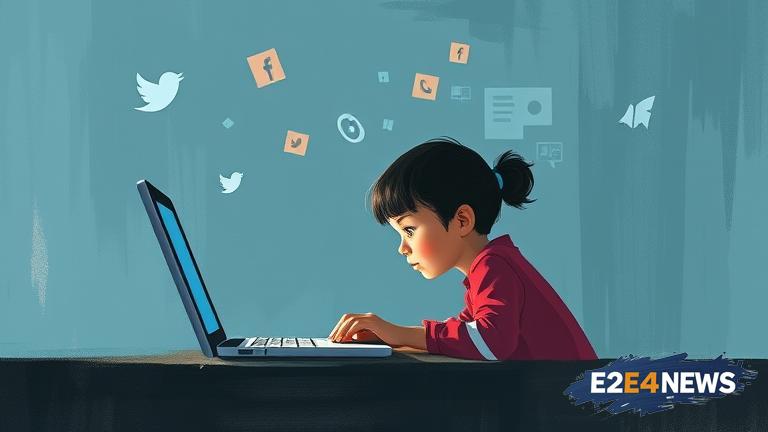The issue of social media protection for minors has been a longstanding concern, with many platforms implementing age restrictions to prevent under-16s from accessing their services. However, a recent report has revealed that these measures are failing to effectively shield young people from online harm. The study found that a significant number of children under 16 are still able to access social media platforms, despite the age restrictions in place. This is often due to the ease with which children can create fake accounts or use existing accounts belonging to older siblings or friends. Furthermore, the report highlighted the lack of robust age verification processes on many social media platforms, making it difficult to accurately determine the age of users. As a result, children under 16 are being exposed to a range of online risks, including cyberbullying, online grooming, and access to inappropriate content. The consequences of this can be severe, with many young people experiencing anxiety, depression, and other mental health issues as a result of their online experiences. In addition to the emotional toll, there are also concerns about the potential long-term effects of social media use on children’s cognitive and social development. The report’s findings have sparked calls for social media companies to take more effective measures to protect minors, including the implementation of more robust age verification processes and increased investment in online safety measures. Governments and regulatory bodies are also being urged to take a more active role in ensuring that social media companies are meeting their obligations to protect young people. The issue is not limited to any one country, with children under 16 around the world being exposed to online risks. In Australia, for example, there have been numerous cases of children being targeted by online predators, highlighting the need for improved protection measures. The Australian government has responded by introducing new laws aimed at improving online safety, including the requirement for social media companies to report on their efforts to protect minors. However, more needs to be done to address the issue, with many experts calling for a more comprehensive approach to online safety. This could include the development of new technologies and tools to help detect and prevent online harm, as well as increased education and awareness-raising efforts to help children and parents understand the risks associated with social media use. Ultimately, the protection of minors on social media requires a collective effort from governments, social media companies, and individuals. By working together, we can help to create a safer online environment for young people and reduce the risks associated with social media use. The report’s findings serve as a reminder of the importance of prioritizing online safety and taking proactive steps to protect minors from harm. As social media continues to play an increasingly prominent role in the lives of young people, it is essential that we take a proactive and comprehensive approach to addressing the risks associated with its use. This includes investing in education and awareness-raising efforts, as well as developing new technologies and tools to help detect and prevent online harm. By taking a collective approach to online safety, we can help to ensure that social media is a positive and safe experience for all users, regardless of age.





